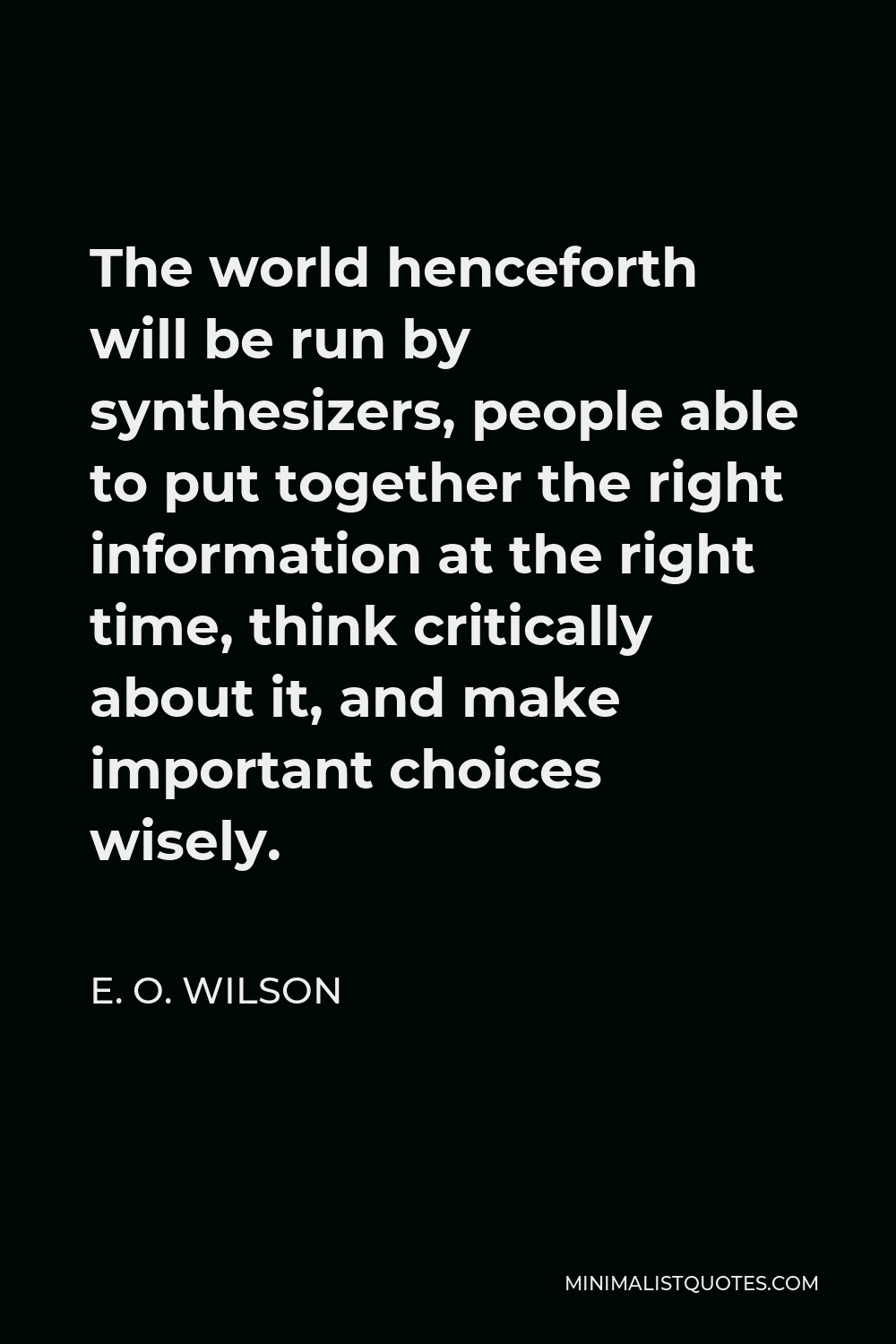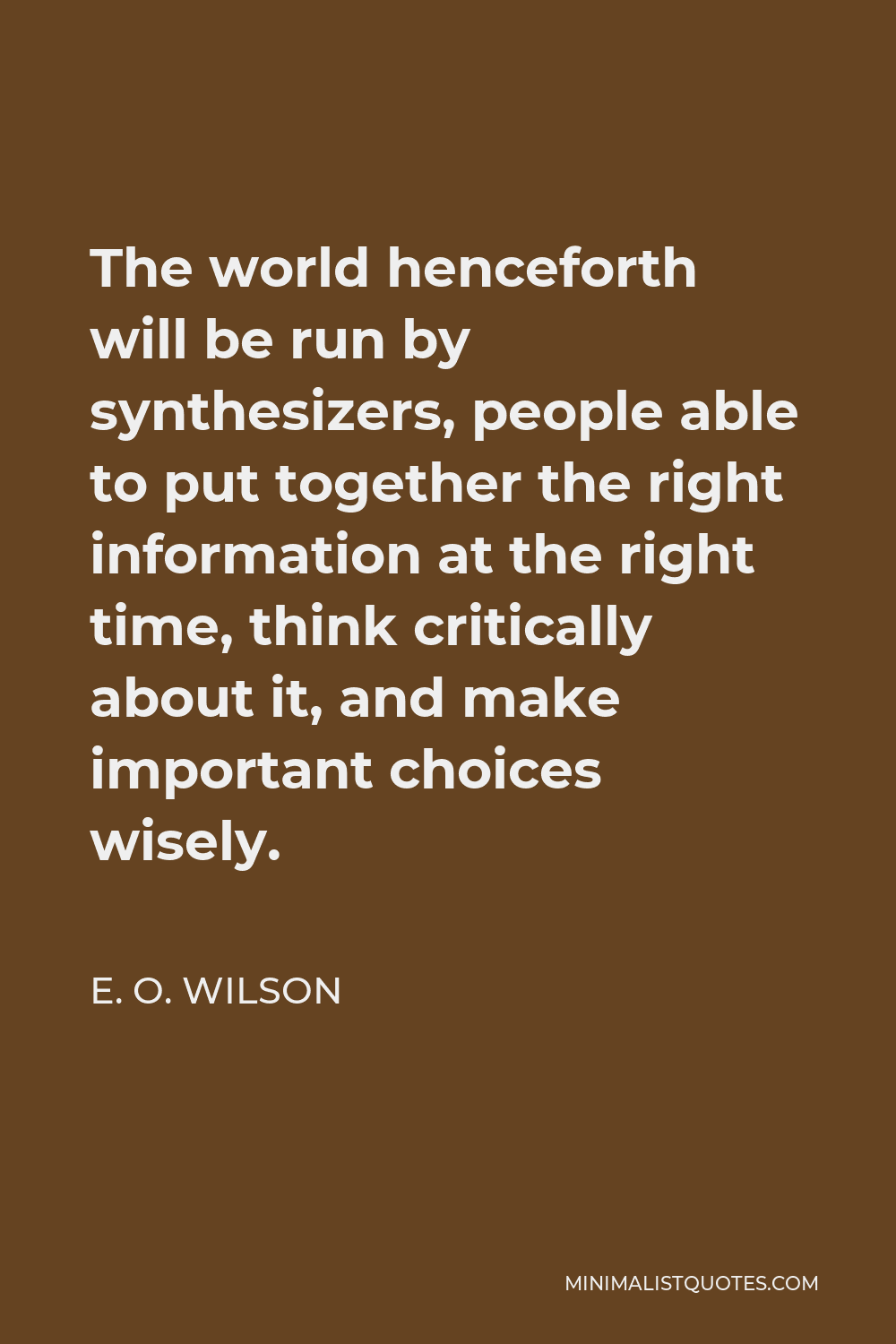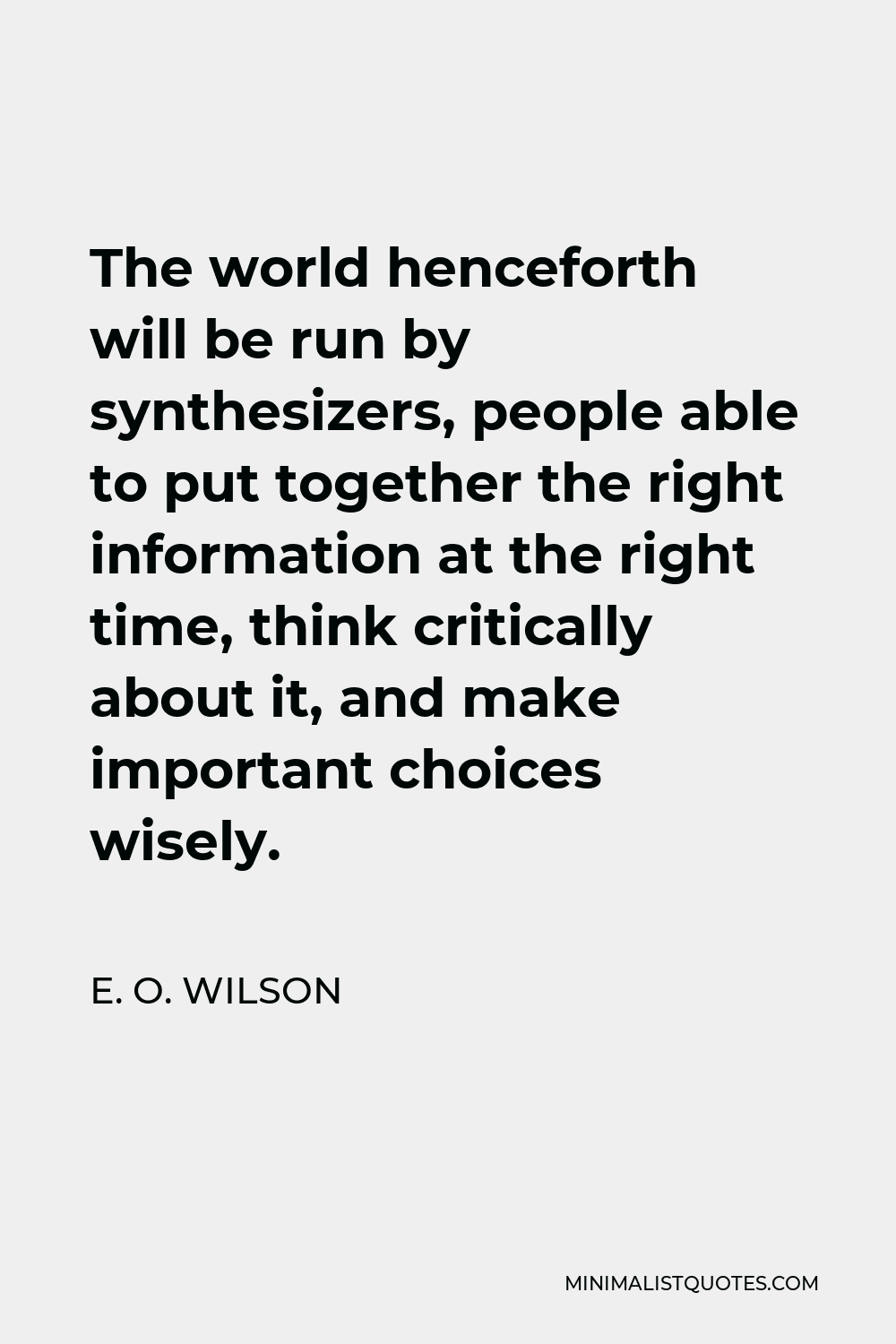Individual versus group selection results in a mix of altruism and selfishness, of virtue and sin, among the members of a society.
E. O. WILSONThe world henceforth will be run by synthesizers, people able to put together the right information at the right time, think critically about it, and make important choices wisely.
More E. O. Wilson Quotes
-





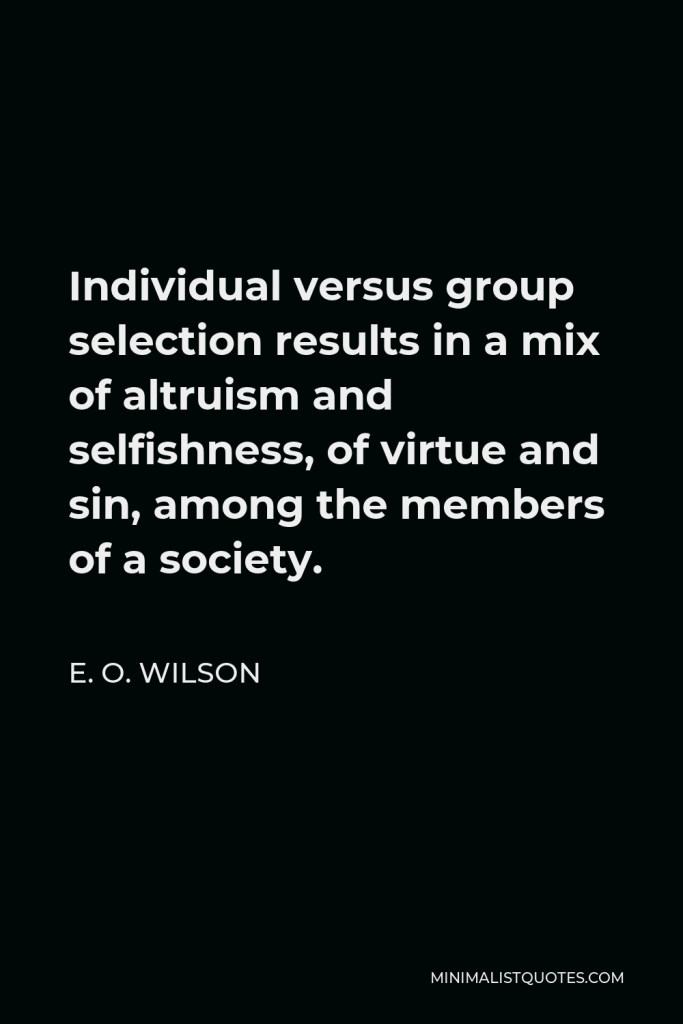

-





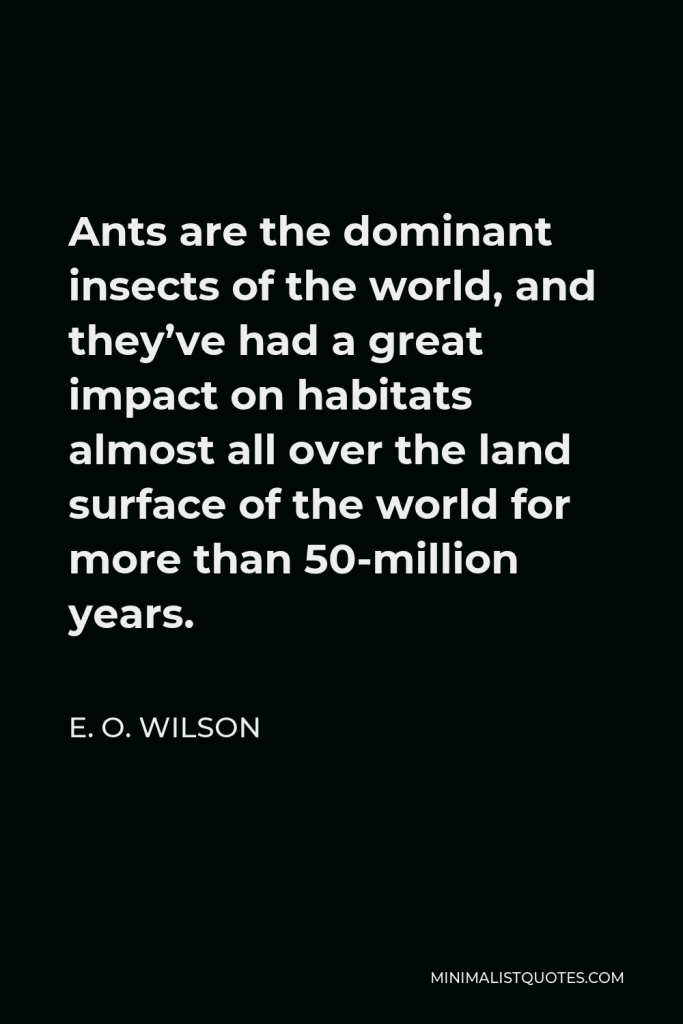

Ants are the dominant insects of the world, and they’ve had a great impact on habitats almost all over the land surface of the world for more than 50-million years.
E. O. WILSON -







Jehovah had nothing to say to Moses and the others about the care of the planet. He had plenty to say about tribal loyalty and conquest.
E. O. WILSON -





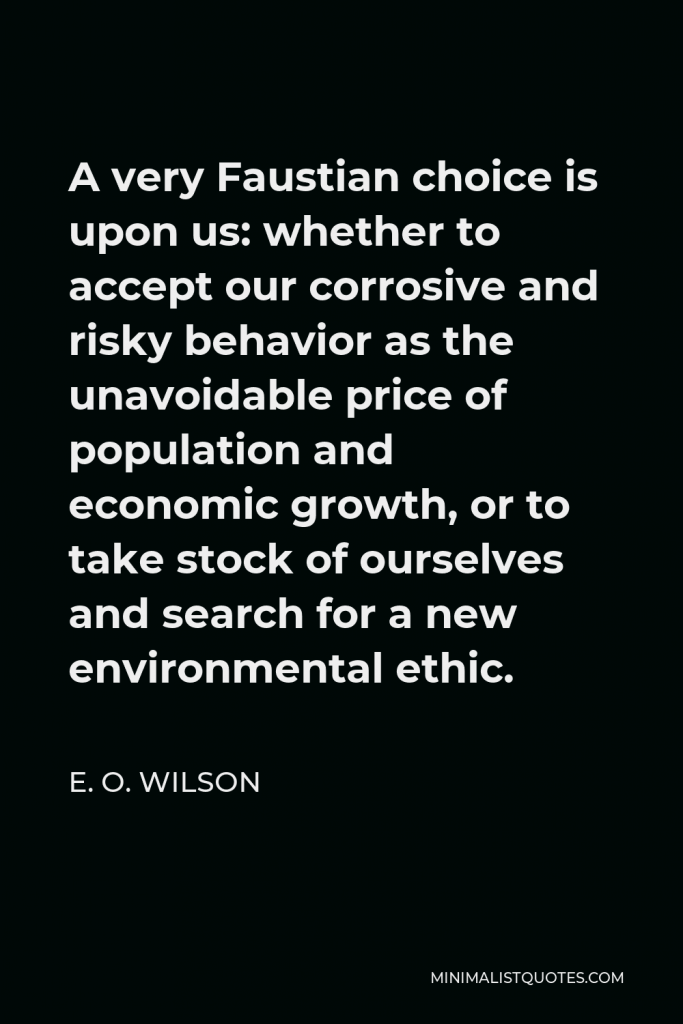

A very Faustian choice is upon us: whether to accept our corrosive and risky behavior as the unavoidable price of population and economic growth, or to take stock of ourselves and search for a new environmental ethic.
E. O. WILSON -





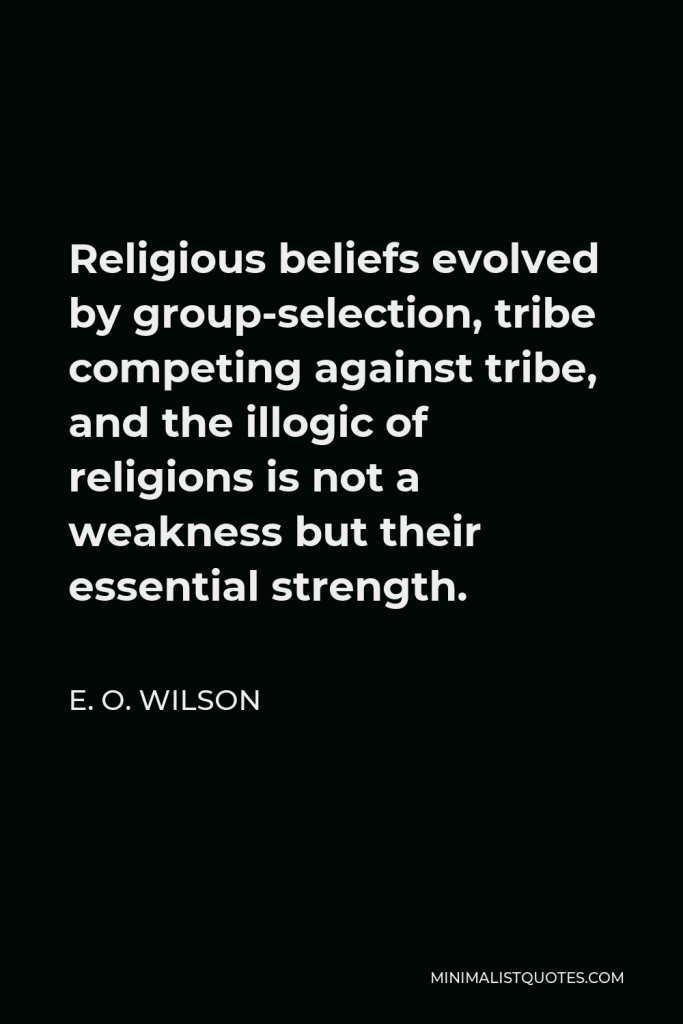

Religious beliefs evolved by group-selection, tribe competing against tribe, and the illogic of religions is not a weakness but their essential strength.
E. O. WILSON -





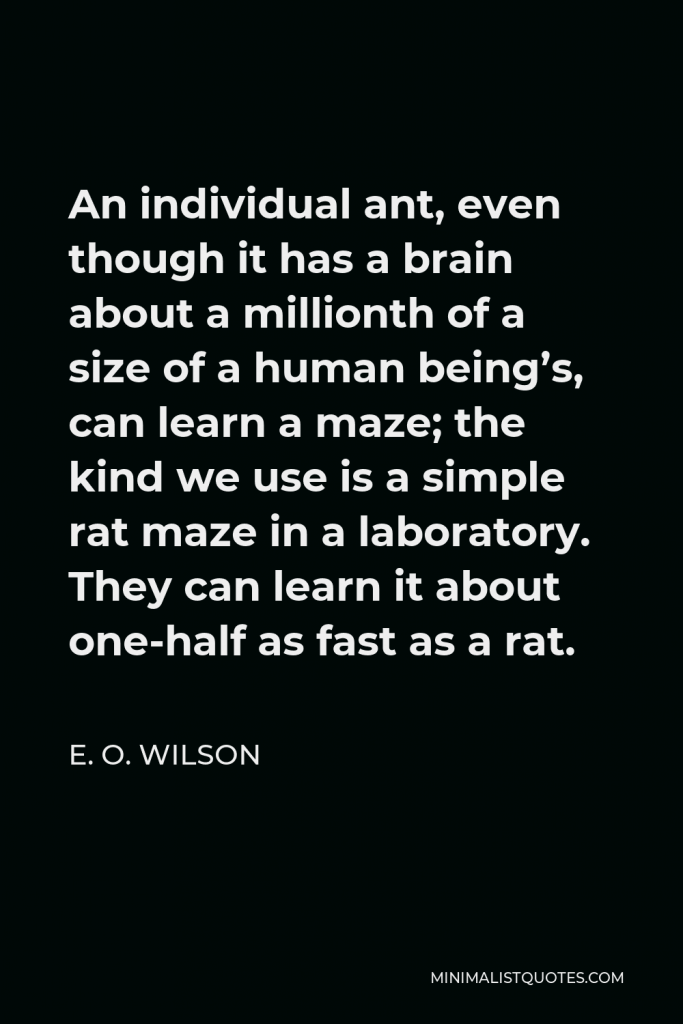

An individual ant, even though it has a brain about a millionth of a size of a human being’s, can learn a maze; the kind we use is a simple rat maze in a laboratory. They can learn it about one-half as fast as a rat.
E. O. WILSON -





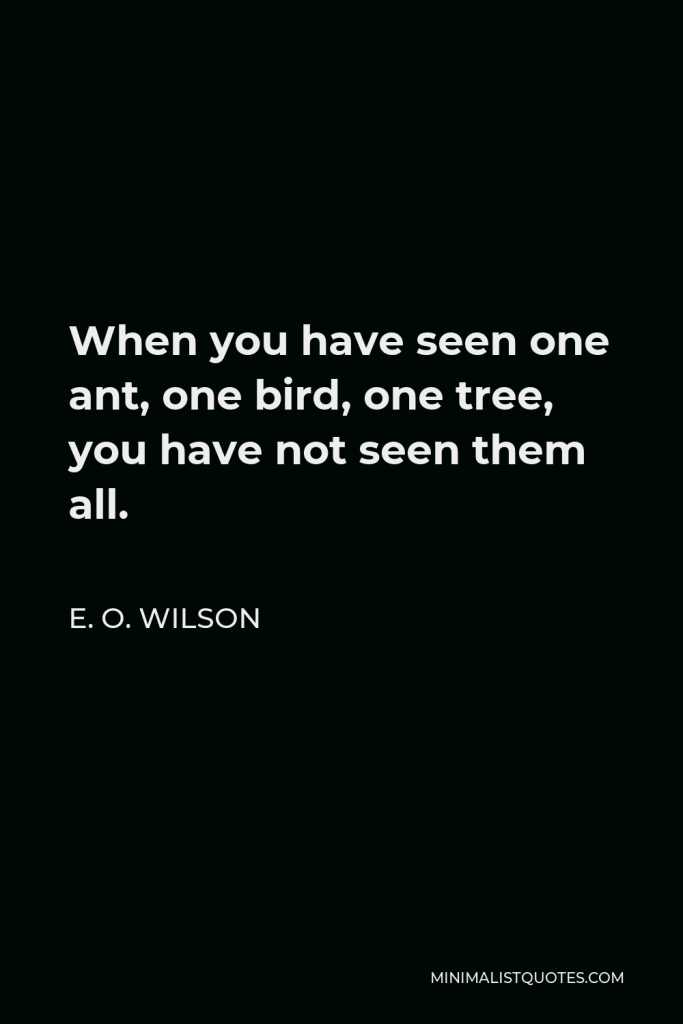

When you have seen one ant, one bird, one tree, you have not seen them all.
E. O. WILSON -





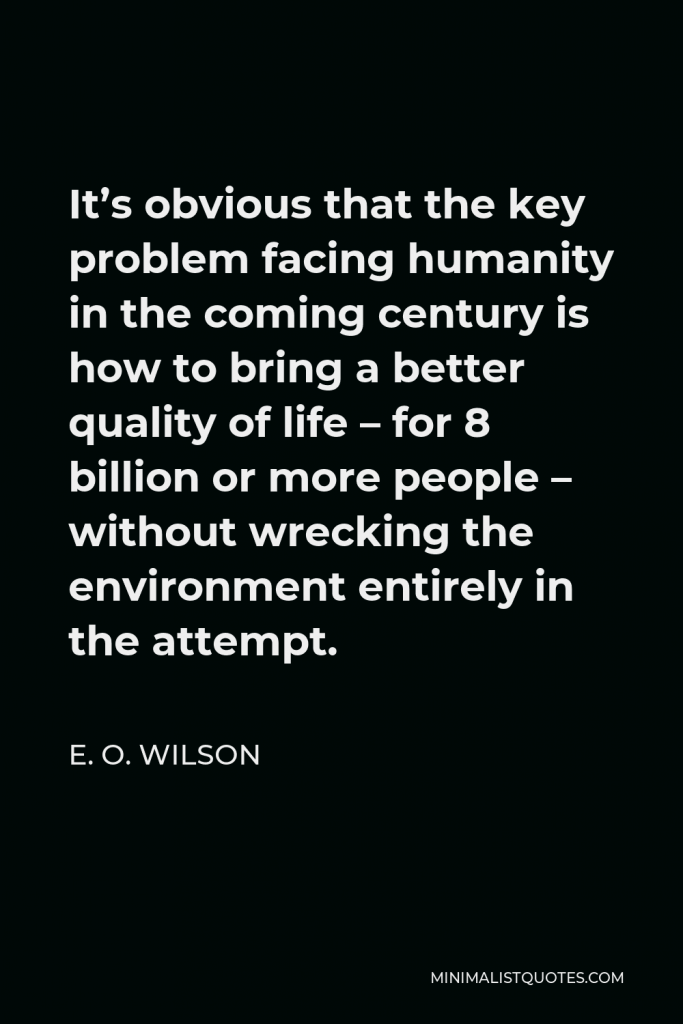

It’s obvious that the key problem facing humanity in the coming century is how to bring a better quality of life – for 8 billion or more people – without wrecking the environment entirely in the attempt.
E. O. WILSON -





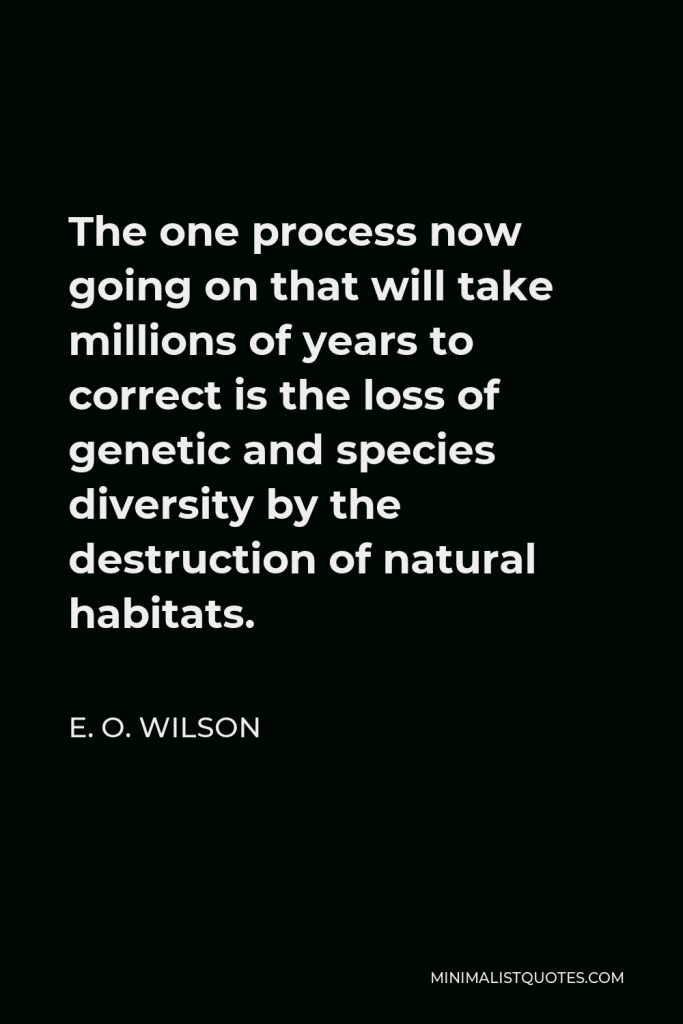

The one process now going on that will take millions of years to correct is the loss of genetic and species diversity by the destruction of natural habitats.
E. O. WILSON -





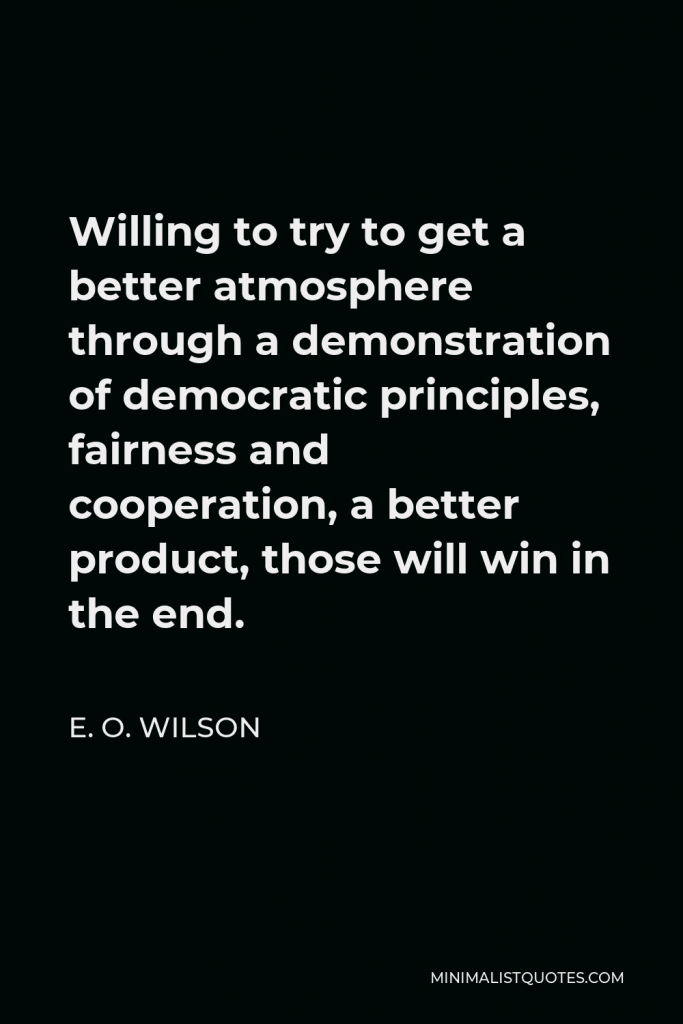

Willing to try to get a better atmosphere through a demonstration of democratic principles, fairness and cooperation, a better product, those will win in the end.
E. O. WILSON -





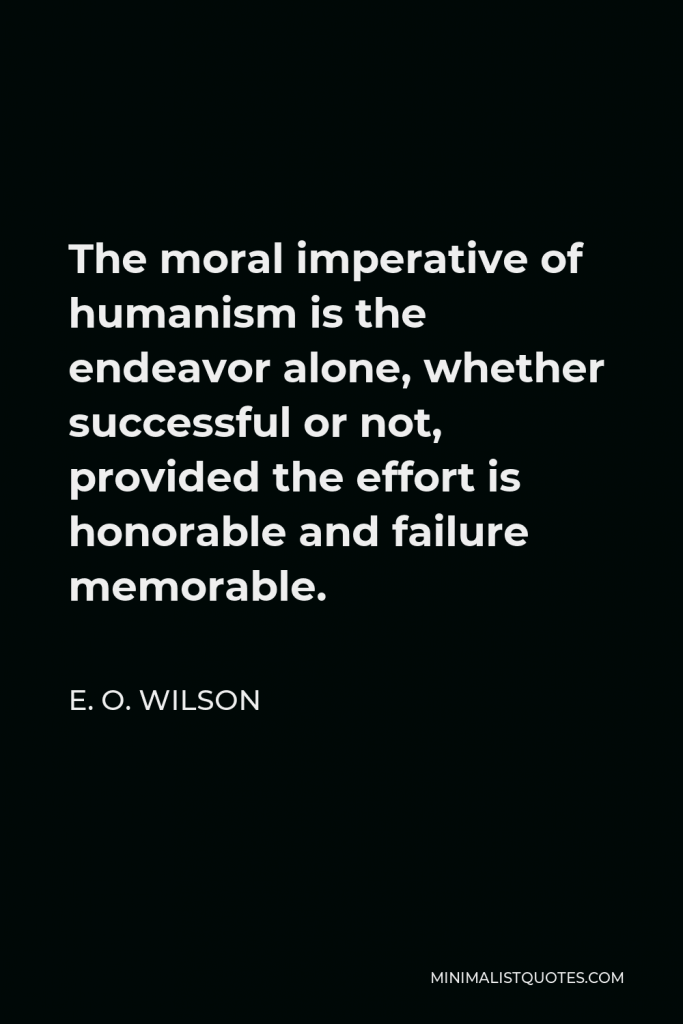

The moral imperative of humanism is the endeavor alone, whether successful or not, provided the effort is honorable and failure memorable.
E. O. WILSON -





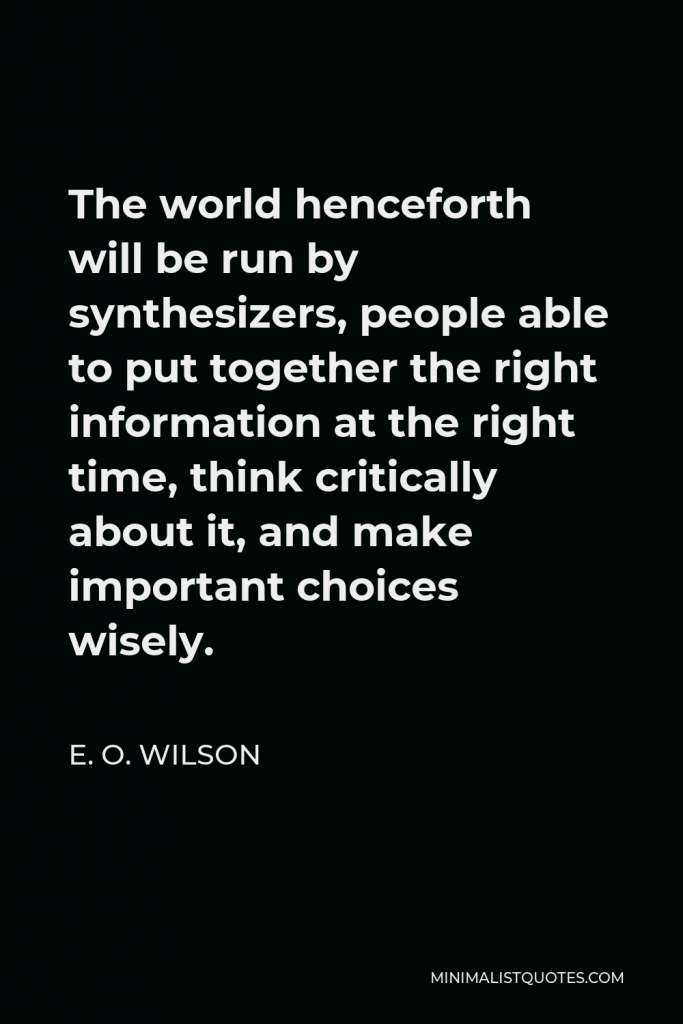

The world henceforth will be run by synthesizers, people able to put together the right information at the right time, think critically about it, and make important choices wisely.
E. O. WILSON -







Well, let me tell you, ants are the dominant insects. They make up as much as a quarter of the biomass of all insects in the world. They are the principal predators. They’re the cemetery workers.
E. O. WILSON -





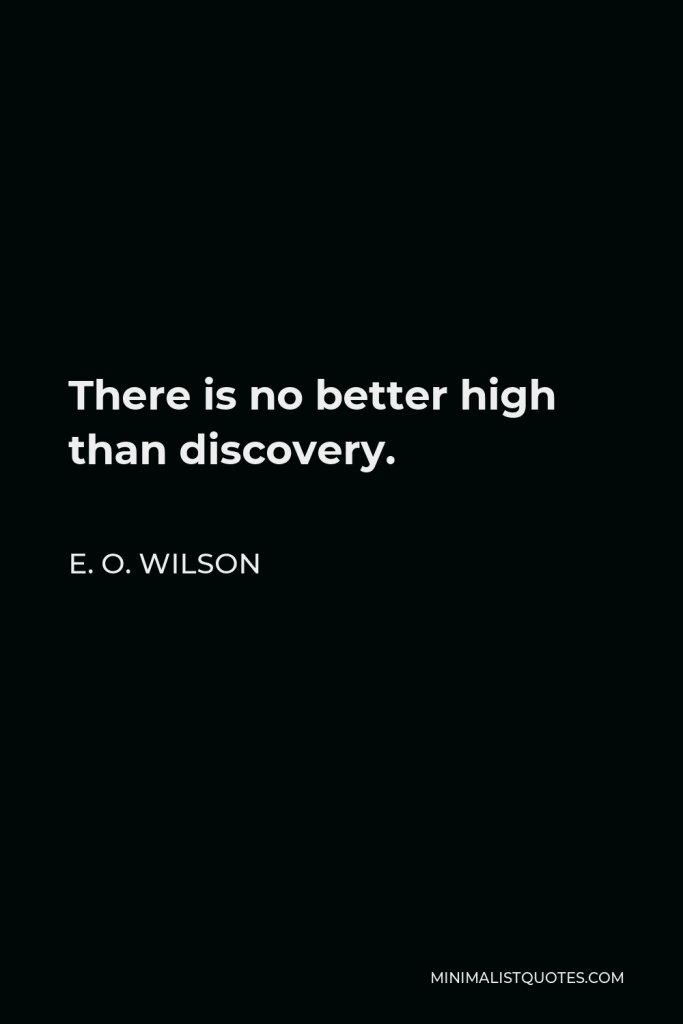

There is no better high than discovery.
E. O. WILSON -







People respect nonfiction but they read novels.
E. O. WILSON -





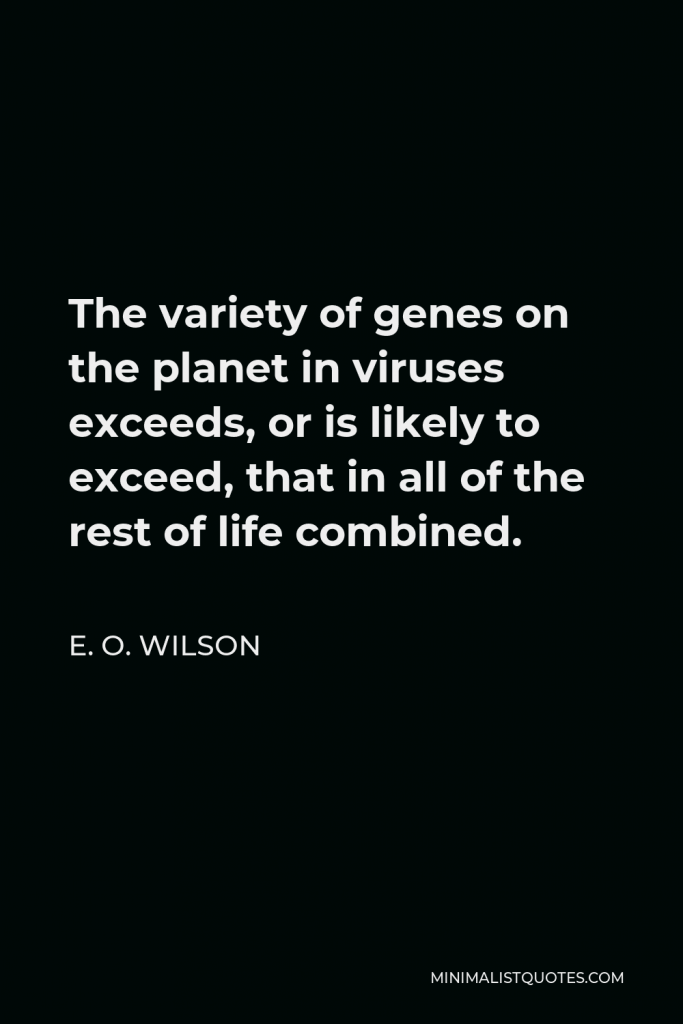

The variety of genes on the planet in viruses exceeds, or is likely to exceed, that in all of the rest of life combined.
E. O. WILSON
